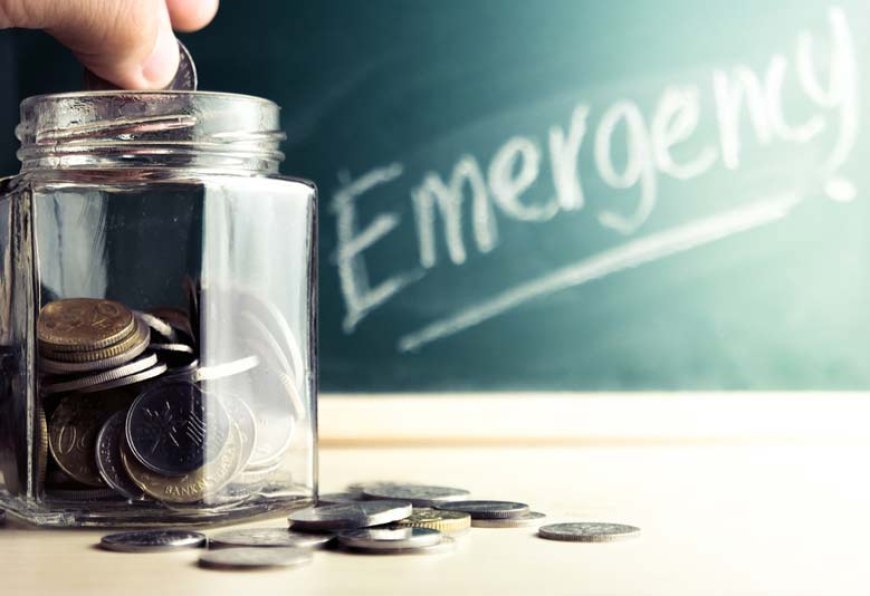What are the Top 10 Strategies for Building an Emergency Fund in a Global Economy
Discover the top 10 effective strategies to build a strong emergency fund in a global economy, ensuring financial security across borders.
In today’s unpredictable world—where pandemics, wars, inflation, and shifting job markets disrupt economies overnight—having an emergency fund is no longer optional. It's essential. Building a financial safety net is especially crucial in a global economy where people live, work, and invest across borders. Whether you're an expat, a remote worker, or simply preparing for uncertain times, your emergency fund must be strong, adaptable, and accessible worldwide. In this article, we explore the top 10 strategies for building an emergency fund in a global economy, so you can weather financial storms—no matter where they come from.
1. Set a Clear, Global Emergency Fund Goal
Before saving, define what an emergency fund means for your lifestyle. For international professionals or travelers, a traditional three-month fund may not suffice. Consider currency fluctuations, cost-of-living differences, and relocation risks. Create a clear savings goal tailored to your lifestyle and geographical flexibility.
- Calculate 3–6 months of essential living expenses (housing, food, transport, healthcare).
- Account for emergency travel costs, such as sudden flights home.
- Adjust for countries with higher or lower costs of living.
- Plan for temporary unemployment, medical needs, or global relocation.
2. Automate Cross-Border Savings
Saving consistently is hard—but automation makes it nearly effortless. Set up automatic transfers from your income to a separate emergency fund, preferably in a stable currency or international savings account. Automation prevents emotional spending decisions and helps money grow quietly in the background.
- Builds discipline without constant effort.
- Reduces reliance on willpower.
- Works across multiple accounts or currencies.
3. Open a Multi-Currency or Global Bank Account
When building an emergency fund in a global economy, you must think beyond borders. Traditional local bank accounts may restrict access, charge high conversion fees, or freeze accounts when you're abroad. Instead, opt for multi-currency accounts with international accessibility. Top options include:
- Wise (formerly TransferWise): Hold, convert, and spend in 50+ currencies.
- Revolut: Offers multi-currency wallets, budgeting, and real-time exchange.
- N26 (EU-based): Ideal for digital nomads and expats in Europe.
4. Start Small, Stay Consistent
You don’t need to save thousands overnight. Begin with whatever amount you can spare—then scale up. The most powerful strategy is consistency, not size. Even $10–$50 per week adds up over time and creates a habit of financial mindfulness.
- Set a weekly or monthly savings goal.
- Track your progress using budgeting apps.
- Gradually increase your contribution with every raise or new income stream.
5. Cut Non-Essentials and Reallocate
Trimming your lifestyle doesn't mean sacrificing happiness. Identify areas where you're overspending, especially on international expenses like streaming services, foreign transaction fees, or premium travel memberships. Redirect those savings to your emergency fund instead.
- Cancel unused subscriptions.
- Replace costly gym memberships with home workouts.
- Limit dining out and prioritize home-cooked meals.
- Use local SIM cards to save on roaming charges.
6. Diversify Currency Risk
In a global economy, currency volatility can erode your savings. Holding all your emergency funds in one currency—especially a weak or unstable one—can be risky. Instead, diversify across two or three major global currencies like USD, EUR, or GBP.
Currency diversification benefits include;
- Shields you from sudden devaluation in one market.
- Protects the real value of your savings.
- Gives you flexibility for cross-border emergencies.
7. Use High-Interest or Inflation-Protected Accounts
Inflation eats savings—especially in a sluggish global economy. Look for high-interest savings accounts or tools that offset inflation to preserve your emergency fund’s value. Some global platforms even offer inflation-linked accounts in stable markets.
Consider:
- High-yield savings accounts (HSAs) in the U.S., UK, or EU.
- Treasury bonds or inflation-linked bonds (for medium- to long-term reserves).
- Digital savings platforms like Raisin or NeoBank.
8. Earn in One Currency, Save in Another
In countries with unstable economies or depreciating currencies, saving in the local currency might be dangerous. If possible, earn in your local currency, but save your emergency fund in a more stable foreign currency to protect value.
Popular "safe haven" currencies include
- U.S. Dollar (USD)
- Euro (EUR)
- Swiss Franc (CHF)
9. Turn Side Hustles into Savings Boosters
In a gig-driven economy, side hustles are more than a source of extra income—they’re emergency fund accelerators. Consider freelancing, consulting, online teaching, or investing in digital products. Allocate a portion (or all) of your side hustle income directly into your emergency fund.
Popular global side gigs include;
- Freelance writing, design, or coding
- Remote customer service or virtual assistant roles
- Teaching English or languages online
- Affiliate marketing or blogging
10. Track Progress and Reassess Regularly
Your emergency fund isn't a “set it and forget it” effort. Your needs evolve—especially if you're moving between countries, changing jobs, or expanding your family. Regularly review your fund size, currency allocation, and access strategies.
Questions to ask:
- Can I still cover 3–6 months of essential expenses?
- Is my money accessible if I’m in a different country?
- Are there better interest options or more stable currencies available?
Conclusion
In an increasingly interconnected and uncertain world, building a strong emergency fund is your best defense against global financial instability. From automating savings in multiple currencies to using side hustle income as a booster, the strategies above help you create a resilient, borderless safety net. Remember, it’s not just about saving money—it’s about being ready for anything, anywhere, at any time. By combining smart tools, consistent effort, and a global perspective, you can protect your future and gain peace of mind, wherever life takes you.
What's Your Reaction?








